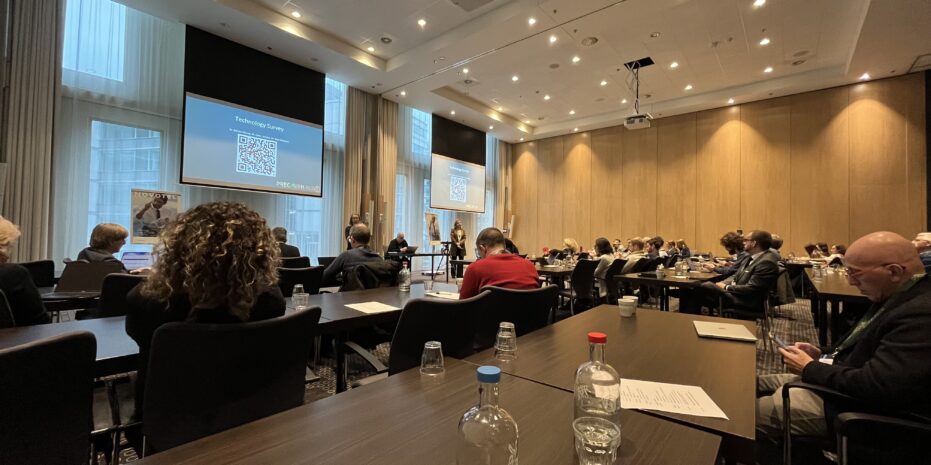Precision ALS Amsterdam Masterclass Focusses on Real-Word Data Collection and Collaboration

Precision-ALS, an ambitious academic, clinical and industry research programme group, convened this month in Amsterdam’s Novotel for an intensive two-day workshop on the project. Proceedings began on the 20th February 2024 with a workshop on “Data Collection for Current State and Problem Solving”, fostering discussions among participants. Prof. Orla Hardiman, Director of the Precision-ALS research programme and Professor of Neurology at Trinity College Dublin, and Assoc. Prof. Miriam Galvin emphasised the overwhelming need for “Real World Data” to ensure that valuable and harmonised data is collected and that the impacts are collectively understood so the innovation reaches those in society who would most benefit. A further drive to recruit more patients from sites involved will be critical in understanding the data currently collected versus the data that is needed over the coming months.
CTO Dr. Anthony Bolger and Senior Software Developer Matthew Nicholson presented the current state of the data collection tool (the patient questionnaire) and WebApp interface (mock-ups) to the group. This presentation detailed the ongoing work in automation (with Utrecht and UK models), APIs and ID mapping for integration. The potential for adding a Natural Language Model to capture richer data was also discussed. Incorporating GP visit details via AI/BOT could also warrant further discussion in understanding co-morbidities and capturing patient history. Prof. Dara Meldrum and Dr. Deirdre Murray also held a workshop on remote monitoring and presented their experimental design approach to capture critical measurements of patients in the home.
A review of biomarker initiatives was additionally provided by Prof. Hardiman. This included innovative transcriptomic work performed in the laboratory of Prof. Jochen Prehn, and a review of a discovery proteomics project in collaboration with Novartis and SomaLogic. Prof. Hardiman provided an overview of the potential of advanced neurophysiologic analyses as both biomarkers and outcome measures and Dr. Florentine Barbey (representing partnering company, Cumulus) presented very positive results for their 16-sensor headset to detect speech changes catching the attention of Pharmaceutical companies interested in using this as a potential biomarker of disease progression. A discussion on the role of Neurofilaments, as both biomarkers and outcome measures, provided the basis of a TRICALS- initiated project proposal (along with industry partners) that will be developed over the coming months.

